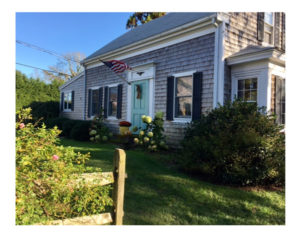There are many people both locally and across the country that are caring for family members with dementia. The focus is often on the individual being cared for, but at what cost to the caregiver?
Caregivers can have their whole lives turned upside down by the pressures of caring for a parent or spouse. They often report higher levels of stress, depression, and health issues including higher blood pressure, and decreased immune function.
It is important, as a caregiver, to also take care of yourself and manage your levels of stress and exhaustion.
One common complaint is sleep deprivation from attending to an elder whose sleep cycle is mixed up. Dementia can interrupt an individual’s circadian rhythms. Caregivers are often up several times a night with a loved one who cannot sleep and may be anxious or wandering. There are several ways to help regulate sleep cycles:
- Increasing daily activity and maintaining a consistent daily schedule
- Eliminate stimulating beverages (particularly late in the day)
- No TV or electronics used in the bedroom at night
- Make sure the elder has a comfortable bed and is not sleeping in a chair
- Also check with your loved one’s doctor to make sure that none of their medications interfere with sleep
There are also studies showing the effectiveness of both light and Melatonin therapies as well as the use of magnesium cream.
A well-rested caregiver is much better equipped to handle caregiving stresses and will have more energy for every part of life.
Aside from sleep, caregivers should make sure to get exercise, socialization, proper nutrition, relaxation and private time. It is very hard to care for someone else without helping yourself first. As they say in airplane safety instructions, put the oxygen mask on yourself first and then help those around you.
There are several resources available to family caregivers. Most towns have a Council on Aging. Often, the COA can recommend services including adult day programs. Many of these programs are available Monday through Friday, affording caregivers time to exercise, go to their own medical appointments, and run errands. They also provide a consistent environment and social opportunities for your family member.
Regularly scheduled in-home help can also relieve some of the physical burdens of transferring, showering and dressing.
There are also facilities that offer respite stays. A respite stay is typically a short stay in a senior care facility. You can entrust the care of your loved one to professionals for a week or more while you take a much needed vacation or just spend a week caring for yourself and visiting with friends. Consider scheduling regular respite stays, perhaps every quarter.
Joining a support group can be very comforting and helps to alleviate feelings of isolation that many caregivers experience. The Alzheimer’s Association of Southeastern Massachusetts, Cape Cod and the Islands has many resources including caregiver training and access to support groups. The Alzheimer’s Family Support Center in Brewster is another local organization providing valuable support to families living with dementia.
Above all else, ask for help from family members and friends. They are often more than willing to help, but don’t know what is needed.
For more information on how to support caregivers, please contact Rosewood Manor.
By Penny Majike, Director of Marketing and Admissions for Rosewood Manor.
Sponsored Content

























